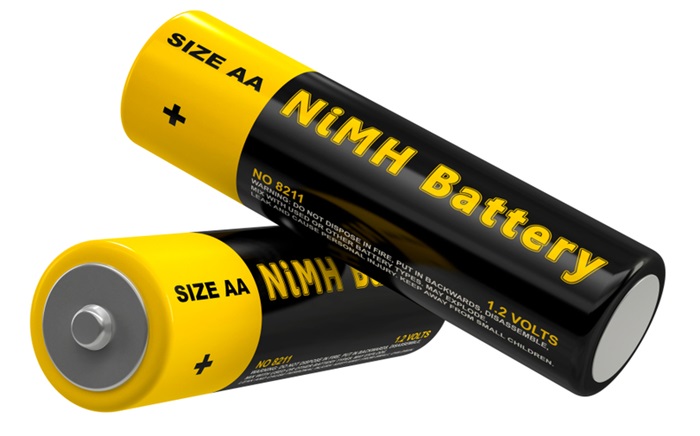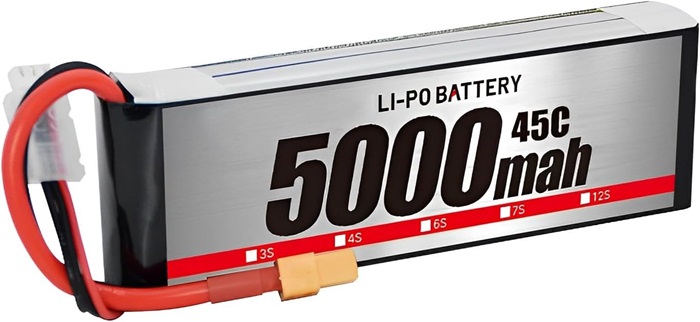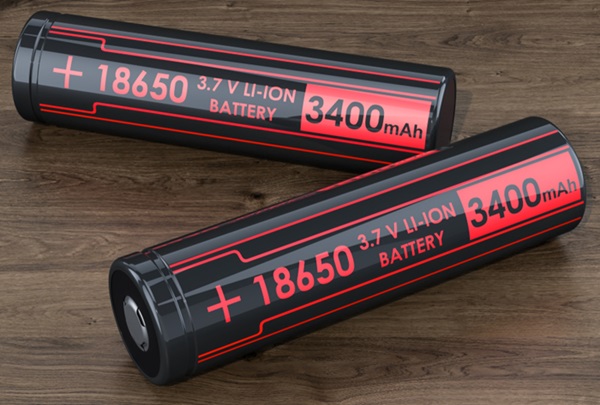In the realm of rechargeable batteries, the preference between NiMH, LiPo, and Li-ion involves considering specific needs and applications. NiMH batteries, favored for their durability and environmental friendliness, find a niche among photographers capturing moments and gardeners relying on powered tools. For drone enthusiasts and RC car fanatics seeking lightweight powerhouses with high energy density, Lithium Polymer (LiPo) batteries emerge as the preferred choice.
On the other hand, tech-savvy consumers and outdoor adventurers often turn to Lithium-ion (Li-ion) batteries, appreciating their balanced blend of energy density, weight, and safety. Understanding these distinctions is pivotal for individuals in various fields, whether capturing memories, indulging in remote-controlled hobbies, or venturing into the great outdoors with reliable electronic companions.
Outline
ToggleWhat Does NiMH Battery Mean?

Pros:
- Environmentally friendly
- Cost-effective
- Reliable and durable
- Easy to find and replace
- No risk of thermal runaway (safer than Li-ion)
- Performs well at low temperatures
- Tolerant of overcharging
Cons:
- Heavier and bulkier
- Slower charging times
- Limited to moderate discharge rates
- Self-discharge rate is higher
What is Lipo Battery Mean?

Pros:
- High energy density
- Lightweight and compact
- Ideal for high-performance applications
- Faster charging times
- Versatile shapes and sizes for various applications
- High discharge rates for power-hungry devices
- Suitable for applications demanding rapid bursts of power
- Low self-discharge rate compared to some alternatives
Cons:
- Prone to swelling and overheating if mishandled
- Sensitive to overcharging and deep discharging
- Shorter lifespan compared to other types
- Requires special care and storage precautions
What Does Li ion Battery Mean?

Pros:
- High energy density
- Lightweight and compact
- Longer lifespan compared to some alternatives
- No memory effects
- Versatile applications in consumer electronics and electric vehicles
- Relatively low self-discharge rate
- Consistent performance throughout the discharge cycle
- Continuously improving technology for enhanced efficiency
Cons:
- Sensitive to high temperatures
- Expensive to manufacture
- Requires protection circuit for safety
- Gradual capacity loss over time
Differences Between NiMH and LiPo and Li ion Batteries?
| Factor | NiMH | LiPo | Li ion |
| 1.Charge and Discharge Current | 0.1 – 1C | 1 – 5C | 0.5 – 1C |
| 2.Energy Density (kWh/m3) | 70 – 100 | 150 – 250 | 200 – 250 |
| 3.Power Density (MW/m3) | 1.5 – 4 | 1 – 2 | 0.4 – 2 |
| 4.Self-Discharge | 13.9–70.6% per month | 5% per month | 0.5 to 1% per month |
| 5.Chances of Explosion When Over Charged | Safe from explosion | Overheat can explode and causes fire | Minimal |
| 6.Suitability and Portability | Portable | Portable | Portable |
| 7.Life Span | 500 – 1000 cycles | 300 – 500 cycles | 500 – 1000 cycles |
| 8.Safety Features | Low safety features, minimal risk. | Moderate safety features, prone to swelling and overheating. | High safety features, includes protection circuits, less prone to thermal issues when handled correctly. |
| 9.Applications | Everyday devices, Low drain devices | RC vehicles, drones | Consumer electronics, EVs, portable electronic, electrical vehicles, laptops |
| 10.Pricing | Economical | Moderate | Moderate to Expensive |
Which is Better, NiMH or LiPo or Li ion?
Determining the battery depends on the intended use. NiMH is durable and eco-friendly, suitable for everyday devices. LiPo offers high energy density and is favored in RC vehicles. Li-ion provides a balanced solution for various applications. Each excels in specific domains, making them better suited to particular purposes. Each type serves its purpose effectively, making it unnecessary to declare one as universally superior. The optimal choice depends on the unique requirements of the intended use.
NiMH Vs LiPo Vs Li ion – FAQs
Ans: In most cases, NiMH batteries are not a direct replacement for LiPo or Li-ion batteries due to differences in voltage and energy density. Each type is designed for specific applications, and using the wrong type may lead to performance issues.
Ans: Charging methods vary, with NiMH batteries typically using simple chargers, while LiPo and Li-ion batteries require specialized chargers with balancing features to ensure safe and optimal charging.
Ans: Li-ion batteries are commonly used in electric vehicles and hybrid cars due to their high energy density, providing a good balance between weight and capacity for extended driving ranges.
Ans: Yes, proper storage conditions are crucial. NiMH batteries should be stored in a cool, dry place. LiPo and Li-ion batteries benefit from storage at partial charge levels, around 40-60%, and in a cool environment.
Ans: Lower internal resistance generally results in better performance. LiPo batteries typically have lower internal resistance, providing more efficient power delivery, especially during high-current demands.
Conclusion
In conclusion, there’s no one-size-fits-all answer to NiMH vs LiPo vs Li-ion. Each battery type has its strengths and is tailored for specific needs. NiMH is robust and eco-friendly, LiPo is lightweight and powerful for hobbies, while Li-ion offers a versatile balance. The right choice depends on your device and usage requirements. Whether it’s everyday gadgets, remote-controlled toys, or high-tech electronics, understanding the unique features of each battery ensures you pick the perfect power source.

